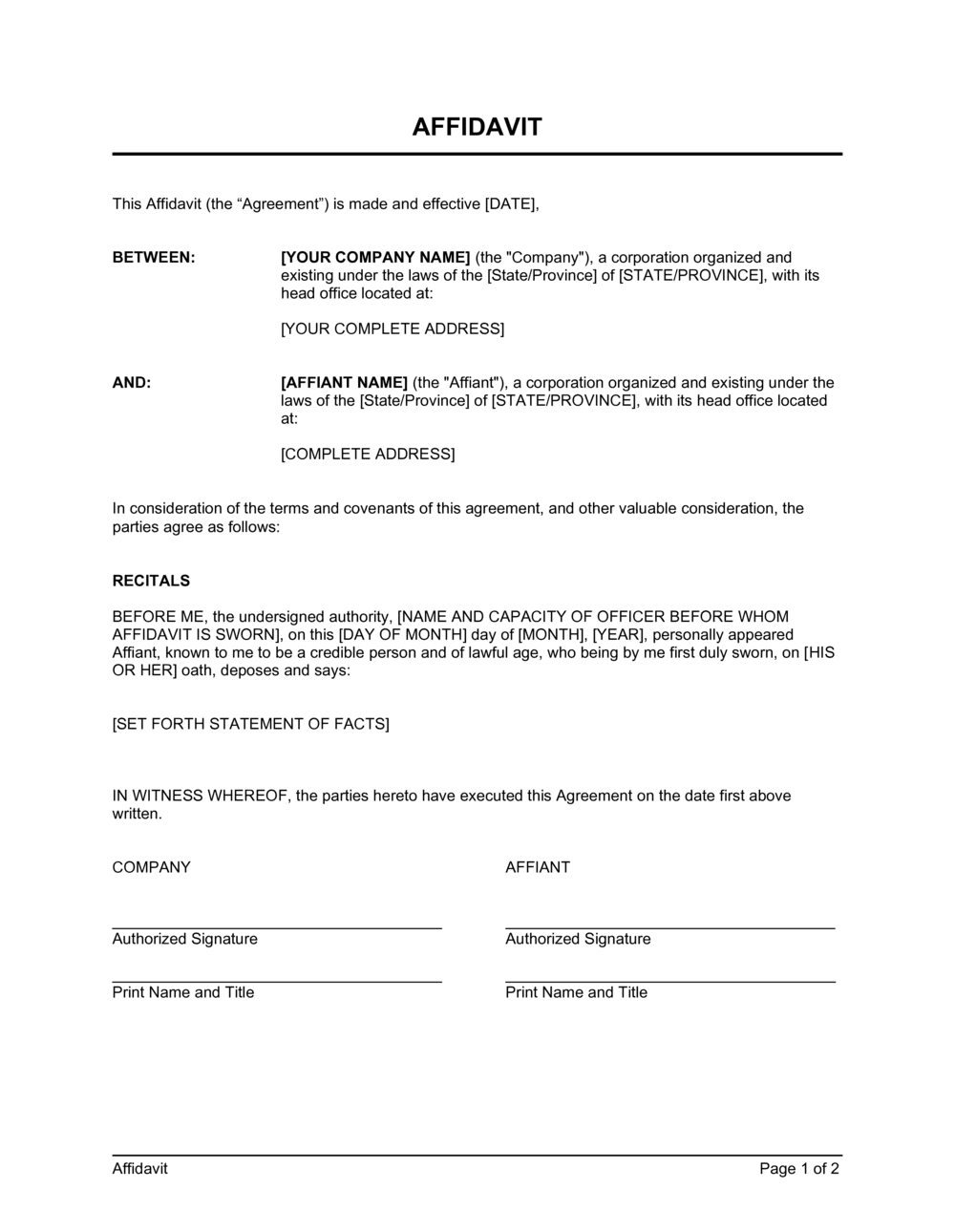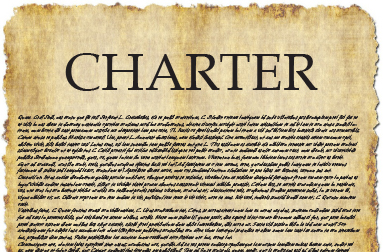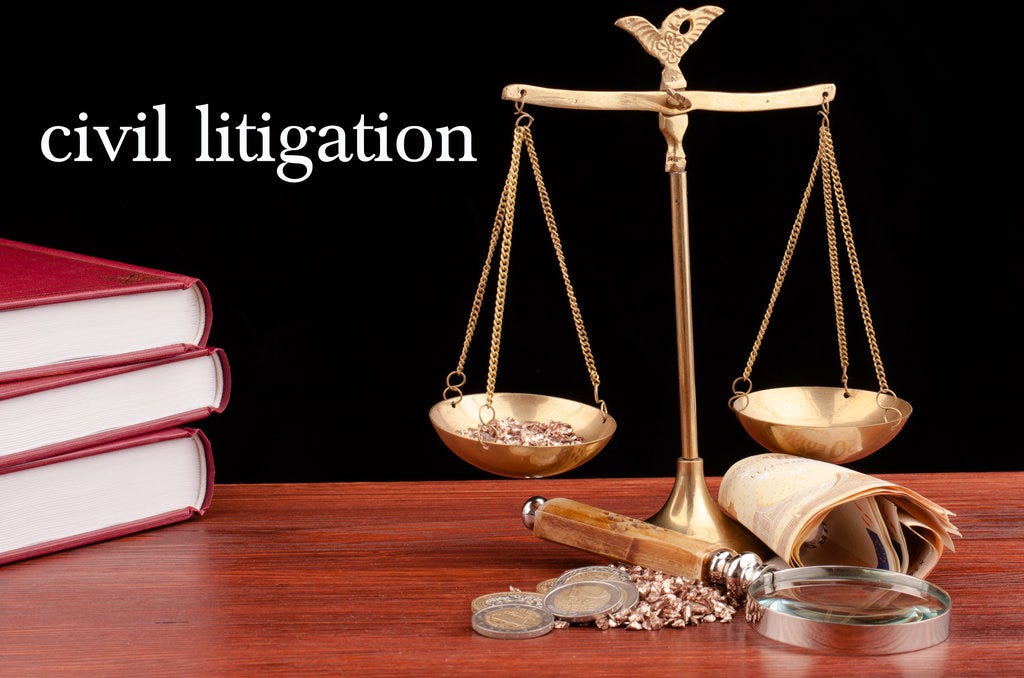My Law Glossary
Hi, my name is Beatrice. I am a student at Montmorency since September 2019. I am in Science but I really want to be a lawyer. So, this glossary is going to be about 20 words that are more specific to this field, law. It can help you to understand difficult terms that are employed in this job. This glossary can be useful for the law students or just anyone who wants to learn more about this topic. You will find the definition, the translation and some examples of each word. I hope this help with what you were looking for.
- adjudicate
- verb
- To make a decision (in a legal case or proceeding), as where a judge or arbitrator rules on some disputed issue or claim between the parties.
- Example: The Court of Appeal declined to adjudicate on this matter, holding that the views expressed by the judge as to the nature of the court's jurisdiction were both obiter and academic.
- fr: juger

- affidavit
- noun
- A written statement confirmed by oath or affirmation, for use as evidence in court.
- Example: In some circumstances, the course of the trial will be such that a witness whose affidavit has been received will after all be required to attend for cross - examination; this applies no less to witnesses abroad as to those within the jurisdiction.
- fr: déclaration sous serment

- allegation
- noun
- A statement of claimed fact contained in a complaint (a written pleading filed to begin a lawsuit), a criminal charge, or an affirmative defense (part of the written answer to a complaint). Until each statement is proved it is only an allegation. Some allegations are made "on information and belief" if the person making the statement is not sure of a fact.
- Example: Rape process, attrition Once an allegation has been made to the police, there are several courses of action they can take.
- fr: allégation

- bailiff
- noun
- An official in a court of law who keeps order, looks after prisoners, etc.
- Example: The table of procedure presupposes that after an order is made, that will be followed by a request for execution in due course by the person in whose favour the order has been made, followed by the execution by the court bailiff.
- fr: huissier

- charter
- noun
- A grant or guarantee of rights, franchises, or privileges from the sovereign power of a state or country.
- Example: Yet, a number of democratic constitutions today contain more than a mere organisation chart of functions and powers; they contain Bills of Rights, which may also include a charter of social and economic rights, something characteristic of constitutions of the twentieth century, although generally honored more in the breach than in the observance.
- fr: charte

- class action
- noun
- A lawsuit brought by a representative member of a large group of people on behalf of all members of the group.
- Example: Viewed in this way, representative standing is a sort of substitute for a class action, that is an action in which a large number of litigants can consolidate their claims into one for the purposes of having it decided by a court.
- fr: recours collectif

- deed
- noun
- A legal document signed and sealed and delivered to effect a transfer of property and to show the legal right to possess it.
- Example: EWHC 1309 Para 41 While it was common ground that the couple were tenants in common, during the transfer of the property in their joint names they signed a deed, which gave the survivor a good receipt of capital monies on purchase.
- fr: acte

- defamation
- noun
- The act of communicating false statements about a person that injure the reputation of that person.
- Example: They brought cases such as defamation, sexual offenses and marriage disputes.
- fr: diffamation

- impeachment
- noun
- A formal document charging a public official with misconduct in office.
- Example: Finally, to use what is said in Parliament for the purpose of construing legislation would be a breach of article 9 of the Bill of Rights as being an impeachment or questioning of the freedom of speech in debates in proceedings in Parliament.
- fr: mise en accusation

- jurisdiction
- noun
- The official power to make legal decisions and judgments.
- Example: A literal reading of s.118 was not taken to conflict with the intention of providing the county court with the jurisdiction to protect its witnesses and hence ensure justice within its proceedings.
- fr: juridiction
- jurisprudence
- noun
- The science or philosophy of law.
- Example: However, she believed that the 'general tenor of [their] jurisprudence' was different to that of which was established by the majority.
- fr: jurisprudence

- legislation
- noun
- The exercise of the power and function of making rules (such as laws) that have the force of authority by virtue of their promulgation by an official organ of a state or other organization.
- Example: A great advantage of this area is that identical legal framework is in force due to standardized European Community (EC) legislation.
- fr: législation
- litigation
- noun
- The act, process, or practice of settling a dispute in a court of law : the act or process of litigating.
- Example: But there is one major drawback of the use of Hansard addressed by almost all the judges and other critics time and again, which is that the use of Hansard greatly increases the cost of litigation.
- fr: litige

- magistrate
- noun
- A civil officer charged with the administration of the law. A minor judicial officer, as a justice of the peace or the judge of a police court, having jurisdiction to try minor criminal cases and to conduct preliminary examinations of people charged with serious crimes.
- Example: Nothing demonstrates this point more clearly than the Outreu affair, where scores of people were falsely imprisoned where an examining magistrate became so convinced of their guilt based on questionable evidence, he failed to exercise independent lines of inquiry.
- fr: magistrat ou magistrate

- manslaughter
- noun
- The crime of killing a human being without malice aforethought, or otherwise in circumstances not amounting to murder.
- Example: If, as Lloyd L.J. suggested in Ex parte Benson (No. 2) , The Times, 21 November 1988, the decision in Handscomb had been that detention for a period equivalent to a determinate sentence of 27 years exceeded by such a wide margin any determinate sentence passed in recent years for the offence of manslaughter by reason of diminished responsibility, and was thus in the absence of reasons irrational, I would not disagree.
- fr: homicide involontaire

- misdemeanor
- noun
- A nonindictable offense, regarded in the US (and formerly in the UK) as less serious than a felony.
- Example: Defacing school property is a misdemeanor.
- fr: délit

- patent
- noun
- A government authority or license conferring a right or title for a set period, especially the sole right to exclude others from making, using, or selling an invention.
- Example: After the poor chapter on "The Legal Framework", there are sections on company law, corporate taxation, competition policy, patent law and insurance, with an impressive list of contributors.
- fr: brevet

- perjury
- noun
- The voluntary violation of an oath or vow either by swearing to what is untrue or by omission to do what has been promised under oath : false swearing.
- Example: It was alleged that Mr Rivkin and Mr Kennedy used Swiss financial institutions to hold shares in an Australian company so as to conceal their beneficial ownership of the shares, and that all three committed perjury in evidence given to the Australian authorities.
- fr: parjure

- prejudice
- noun
- Injury or damage resulting from some judgment or action of another in disregard of one's rights, especially : detriment to one's legal rights or claims.
- Example: The Law Society, Bowman v Fels Guidance, 13 September 2005, pp.8 ibid Proceeds of Crime Act 2002, section 333, see: infra The tipping off offence is committed where following a report to the SOCA someone "makes a disclosure which is likely to prejudice any investigation ".
- fr: préjudice

- request
- verb
- A way of saying that a party to a lawsuit (or usually the attorney) is asking or demanding a judge to act (such as issuing a writ) or demanding something from the other party (such as production of documents).
- Example: It is reasonable to deduce that no client guilty of an offence would be willing to waive his LPP, which would render a request for such consent worthless.
- fr: demande